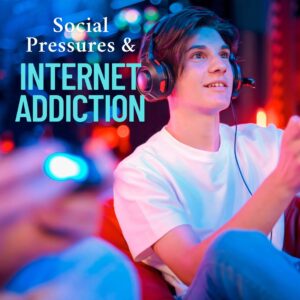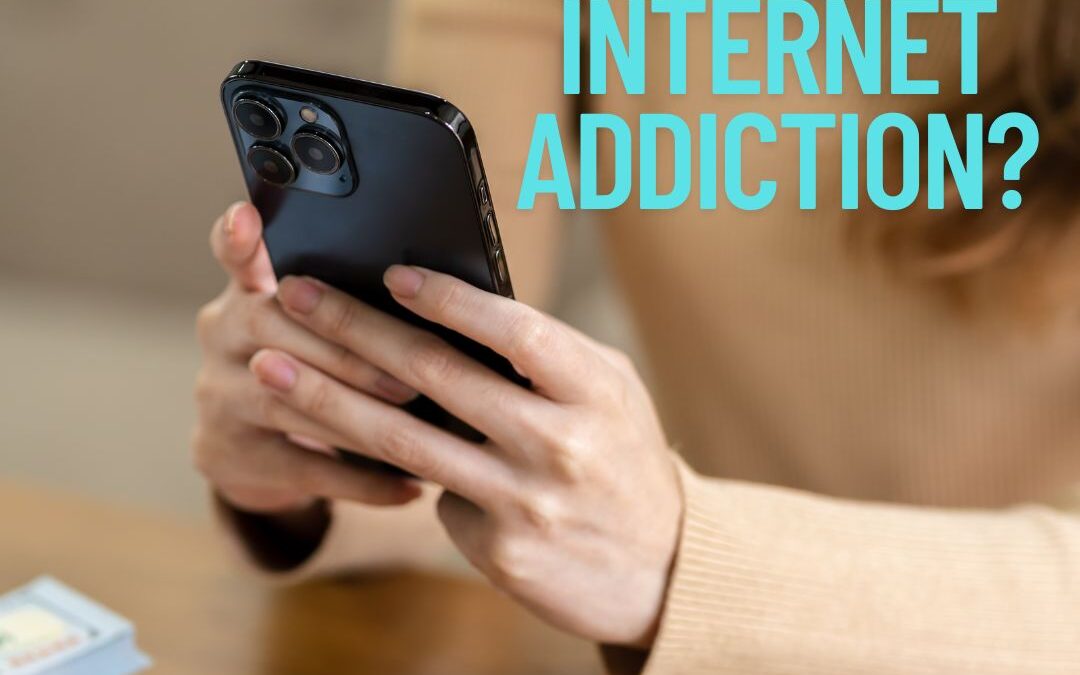Causes of Internet Addiction
 Internet addiction is more common than ever. With phones, laptops, and smart devices at our fingertips, staying online feels nearly impossible to avoid. At The Arise Society, we’ve seen firsthand how quickly young adults can become stuck in the cycle of endless scrolling and clicking. Understanding the causes of internet addiction is the first step to breaking free.
Internet addiction is more common than ever. With phones, laptops, and smart devices at our fingertips, staying online feels nearly impossible to avoid. At The Arise Society, we’ve seen firsthand how quickly young adults can become stuck in the cycle of endless scrolling and clicking. Understanding the causes of internet addiction is the first step to breaking free.
Psychological Causes of Internet Addiction
Escapism: Coping With Anxiety and Depression
Many people turn to the internet when real life feels overwhelming. Social media, games, and videos offer a quick escape from stress, anxiety, or depression. I remember a student feeling anxious about college assignments who would spend hours online to avoid those feelings. The relief was short-lived, but the habit stuck.
Dependency and Emotional Relief
Internet addiction often begins as a way to manage uncomfortable emotions. Over time, simple habits—like checking notifications to feel better—can become hard-to-break dependencies. Research shows that people battling depression or anxiety are at higher risk of seeking this digital relief.
Social Pressures and Internet Addiction
 The Need for Connection
The Need for Connection
Connecting with friends used to require a phone call or in-person meeting. Now, social validation comes quickly with likes, comments, and followers. For many, especially teens and young adults, missing out on online conversations is a genuine fear.
Peer Influence Among Young Adults
The pressure to fit in online is real. Students have shared with us how tough it is to log off when everyone else is connecting, posting, and sharing. The desire to keep up often fuels more time spent on screens—even when they want to stop.
Environmental Factors in Internet Addiction
24/7 Accessibility and Device Proximity
The internet is always available. With smartphones in pockets and computers on every desk, it’s hard to unplug. Devices follow us everywhere—class, work, even to bed—making the lure of the web constant.
Digital Design That Fuels Addiction
Digital platforms are designed to keep you engaged. Social media apps, games, and streaming services use notifications and endless feeds to make sure you stay connected. These features aren’t accidents—they’re built to draw you back in, day after day.
Instant Gratification and Brain Chemistry
Immediate Rewards and Dopamine Triggers
Every time you receive a new message or see a favorite account update, your brain gets a little boost of pleasure. This instant gratification is addictive, making it easy to repeat the behavior just to feel that “hit” again.
Variable Rewards and Habit Loops
Apps and platforms use unpredictable rewards, like surprise notifications or random video recommendations, which the brain finds irresistible. This pattern—known as a variable reward schedule—can train you to check your device over and over, hoping for the next reward.
How The Arise Society Helps Young Adults With Internet Addiction
 Relationship-Based Therapeutic Support
Relationship-Based Therapeutic Support
At The Arise Society, we work with young adults every day who struggle with internet addiction. Our relationship-based approach focuses on helping students build real connections, both with peers and mentors.
Academic and Life Skills Coaching
We know that strong study habits and life skills reduce the risk of seeking escapes online. Our team provides personalized academic coaching, daily support, and real-life practice to help students regain control.
Real Student Success Stories
One young man came to us glued to his phone, missing deadlines and feeling isolated. Working together, he learned healthier routines and found ways to cope with anxiety. Now, he engages in classes and activities—his phone is just a tool, not a trap.
FAQs About the Causes of Internet Addiction
What are the main causes of internet addiction?
Internet addiction usually stems from a mix of psychological struggles, social pressures, easy access to technology, and the lure of instant gratification.
How do mental health struggles influence internet addiction?
Individuals with anxiety or depression may turn to the internet for escape. This can lead to dependency, especially if digital spaces provide temporary emotional relief.
How does peer pressure play a role?
Social media is driven by connection and validation. Many young adults feel pressured to keep up with friends online, making it hard to unplug.
Why are digital platforms so addictive?
Apps and websites are designed with features that trigger pleasure chemicals in the brain. Constant notifications and random rewards keep users engaged.
How can The Arise Society help?
Our program offers therapeutic support, academic guidance, and real-world social experiences. We help students manage their internet use, build confidence, and develop new skills.
Conclusion: Understanding and Overcoming Internet Addiction
The causes of internet addiction include psychological needs, social expectations, constant access, and the appeal of quick rewards. Recognizing these drivers is the first step toward healthier habits. If you or someone you care about is struggling, The Arise Society is here to help. Reach out today—let’s find balance together.
Sources:


 Relationship-Based Therapeutic Support
Relationship-Based Therapeutic Support